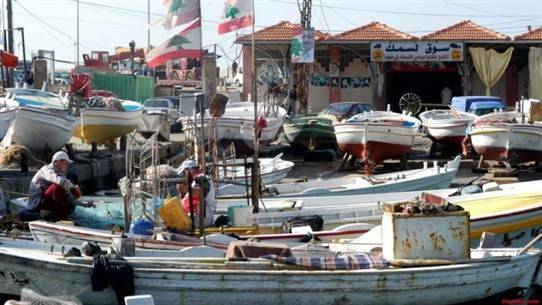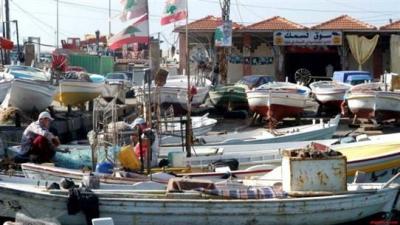Along the pier of the fishermen's port in Sidon, hundreds of fishing boats line up early in the morning after a daily fishing trip. This profession has been organically linked to the city for many years, and perhaps its name is derived from the craft of its people. There is no Sidon without fishermen residing in the old city by the sea, who practice the profession despite its hardships and inherit it from their fathers and grandfathers. Some seek adventure and freedom driven by a passion for the sea, while others pursue it for livelihood or as a regular job.
At the port, the eyes of the fishermen eagerly look toward the "Mira" - the wholesale market, awaiting its completion. They transfer their catch, which emits the aroma of fresh fish, to makeshift homes that serve as a temporary "alternative market." Meanwhile, others sit along the waterfront, tying up their boats to protect them from gusts of wind and rain, or repair nets that have tangled endlessly in preparation for another trip the next day after being torn or damaged by "nifekha" fish, wandering dolphins, stray debris, and the increasingly appearing sea dogs.
Amid a pile of mixed-colored nets, fisherman Mohamed Ranno is busy repairing his net, which was torn by "nifekha" fish during his fishing trip. He tells "Nidaa Al-Watan": "I inherited this profession from my father. During the Israeli invasion of Lebanon in 1982, he was pursued by agents, and I fled with him to Beirut via a small boat. I learned the trade from him since then, and I still cling to it as an irreplaceable heritage despite the decline in catches, which is linked to the fluctuations of the sea and complaints about the 'nifekha' fish that proliferate in summer and winter, tearing and damaging the nets. This forces us to work twice—fishing in the morning and repairing the nets in the afternoon with their high costs in dollars, in addition to the price of fuel."
Another reason for the decline of the profession is the "jaroufa," a type of net characterized by small openings that capture all kinds of fish, both small and large, as well as their eggs, which diminishes the chances of their reproduction, leading to a depletion of fish stocks. This has also caused some reluctance to inherit the profession, as it has become less favored among many young people. The catch has reduced, and its problems have increased.
Fisherman Qassem Khalil Badi tells "Nidaa Al-Watan": "Decades ago, fishing was not merely a way to earn a living but a primary inheritance and tradition in the lives of Sidon's people, given their relationship with the sea, rich with memories—some happy, some sad." He adds: "I inherited it from my father, who inherited it from my grandfather; but unfortunately, it is no longer enough for a decent living. Therefore, I decided not to pass it on to my only son, Khalil. It was a profession that provided a good living but has now become 'food that does not last' under the suffocating economic crisis, where all its requirements are purchased in US dollars while we sell in Lebanese pounds."
"Abo Khalil" recalls his memories with the sea and his livelihood, saying: "We used to live in bliss. This profession opened homes, established families, and educated their children. However, over time, it began to decline due to chaos, illegal fishing, and waste, and today due to rising costs and prices, 'nifekha' fish, and sea dogs that have been reproducing and spreading unprecedentedly, as well as small dolphins, along with stray waste and wood—all of which tear the nets and necessitate buying new ones or repairing them and incurring additional costs."
Today, there are about 240 fishermen working on more than 140 boats in the Sidon port, contributing to preserving an essential part of the city’s heritage. They remain committed to the profession and prevent its extinction despite the many challenges they face, and they are left to their fate without support to help them overcome the hardships of life and its crises.




